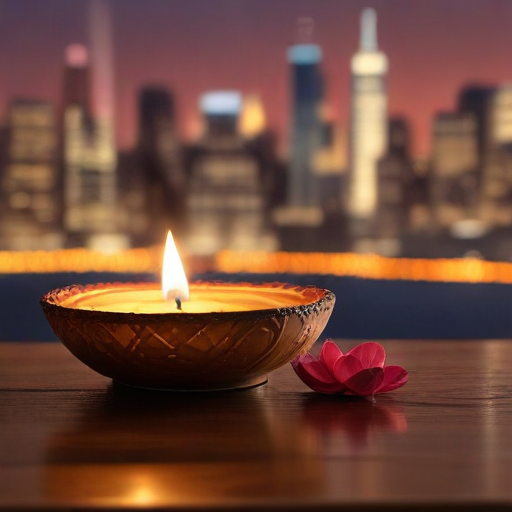On November 1, New York City made history by closing all public schools to observe Diwali, the Festival of Lights, a significant milestone for South Asian and Indo-Caribbean communities. This landmark decision followed the advocacy efforts of Assembly Member Jenifer Rajkumar, who championed the Diwali School Holiday legislation.
Diwali, celebrated by various religious communities, symbolizes the victory of light over darkness and good over evil through the lighting of oil lamps, communal prayers, and joyful feasts. This festival also marks the Hindu New Year and occurs annually based on the lunar calendar, usually falling in October or November.
In a passionate statement, Rajkumar expressed pride in having led this historic initiative, noting that it allowed New Yorkers to unite and formally recognize Diwali as a school holiday. “With the passing of my Diwali School Holiday legislation, we came together as a state to speak with one voice,” she stated. She emphasized that this accomplishment would resonate through generations, providing future New Yorkers with the opportunity to observe the holiday.
The establishment of this holiday culminates over 20 years of advocacy by leaders from the South Asian and Indo-Caribbean communities, who sought acknowledgment for Diwali, observed by a substantial number of Hindu, Sikh, Buddhist, and Jain residents in New York City. Advocates believed that recognizing this holiday would honor the cultural heritage of the South Asian community while fostering inclusivity within the city’s diverse landscape.
Rajkumar also noted the significance of recognizing the 600,000 Hindu, Sikh, Buddhist, and Jain Americans as vital contributors to New York City. “We proudly say that Diwali is not just a holiday—it is an American holiday, and the South Asian community is part of the American story,” she emphasized.
Prior to the holiday, Mayor Eric Adams celebrated Diwali at Gracie Mansion and commended Rajkumar’s efforts to elevate the holiday’s status. He highlighted the determination of Rajkumar, noting how she overcame skepticism to make Diwali a recognized holiday. The Mayor also acknowledged the resilience of the South Asian community, particularly during challenging times like the COVID-19 pandemic, praising their contributions in healthcare and beyond.
On October 31, thousands of New Yorkers gathered in Times Square to celebrate Diwali, with the mayor, Rajkumar, and other officials lighting diya lamps in a ceremonial tribute to the occasion.
The recognition of Diwali as a school holiday signifies a new chapter for New York City, highlighting the essential role that South Asian communities play in the city’s cultural and social framework. As Rajkumar poignantly remarked, “We have lit an everlasting lamp in the hearts and minds of all New Yorkers.” This historic holiday now serves as a beacon of unity, resilience, and cultural celebration for generations to come.
This milestone not only signifies progress toward inclusivity but also fosters stronger relationships among varied communities in New York City. By celebrating such diverse cultural heritage, the city embraces its identity as a melting pot, promoting a future where all voices are heard and celebrated.
